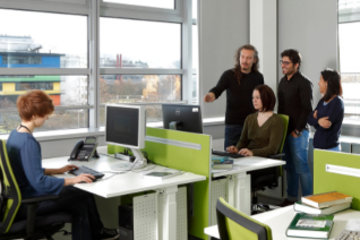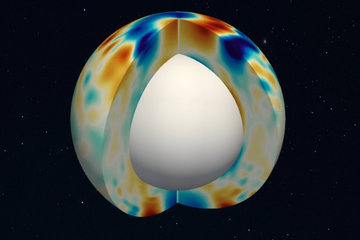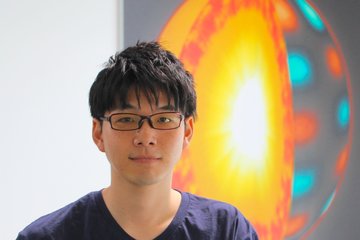New Collaborative Research Centre
The German Research Foundation funds ‘Mathematics of Experiment’ with approximately nine million euros.
The German Research Foundation (DFG) will be funding a new Collaborative Research Centre (CRC) at the University of Göttingen to start 1 January 2021: ‘Mathematics of Experiment: the challenge of indirect measurements in the natural sciences’. CRC 1456 comprises 16 scientific projects in which researchers from mathematics and natural sciences work together to analyse specific experimental data. The total funding amounts to around nine million euros over a period of four years. The CRC involves 27 researchers from the University of Göttingen in the Faculties of Mathematics and Computer Science, Physics, Chemistry, and the University Medical Centre, as well as the Max Planck Institutes for Biophysical Chemistry, and Solar System Research (MPS) in Göttingen. In addition, a research group from the University of Jena is involved.
"In many areas of the natural sciences in recent decades, methods have been developed to measure huge amounts of data cheaply and efficiently," explains the lead of the CRC, Professor Thorsten Hohage from the Institute of Numerical and Applied Mathematics at the University of Göttingen, who is a Max Planck Fellow at MPS. "The main challenge today is often to extract meaningful information from this data - modern measurement technologies often only provide information in an indirect way, and the observed data are very noisy."
The aim of the CRC is to contribute to the efficient extraction of the most quantitative information from experimental data based on mathematical modelling and analysis. Progress made in data science in recent years will be incorporated and combined with model-based approaches to develop techniques for analysing scientific data. Applications range from condensed matter physics, molecular or cellular biophysics, biomedical research to astronomy.
The new CRC will link model-based mathematical data analysis activities at MPS with related activities in 16 other projects on the Göttingen Campus. Together with Professor Thorsten Hohage and Professor Christoph Lehrenfeld from the University’s Institute of Numerical and Applied Mathematics, MPS-Director Professor Laurent Gizon is the Principal Investigator of a project on forward and inverse modeling in helioseismology. The DFG will fund two researchers to support this activity.
"One of the practical applications of this work is to further develop the method of helioseismic holography, which is a very promising method to make images in the solar interior. Helioseismic holography holography was originally invented to see solar active regions on the farside of the sun. The aim of the CRC project is to turn helioseismic holography into a quantitative method to map flows at high spatial resolution in the solar interior, while keeping the noise under control”, Gizon explains.
Further information can be found at www.uni-goettingen.de/crc1456.











